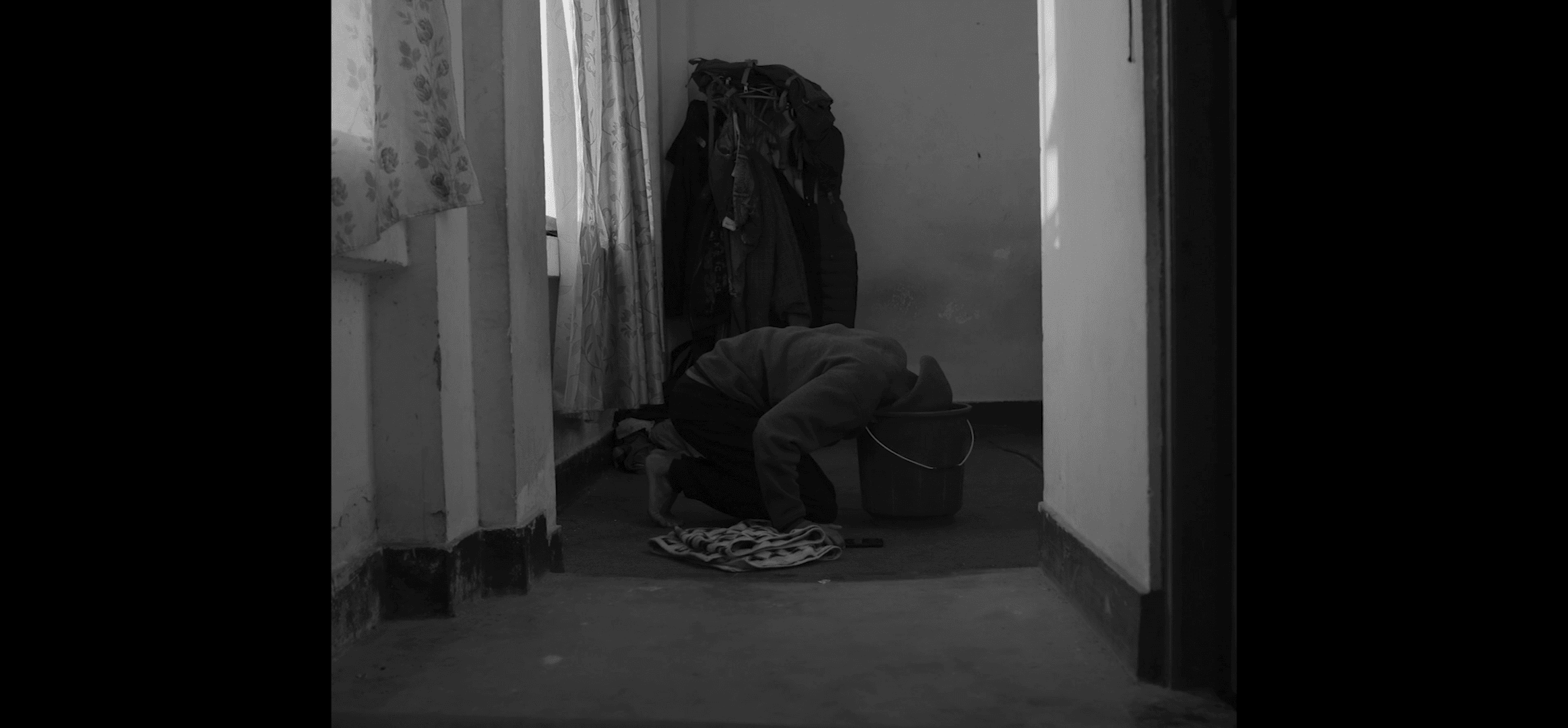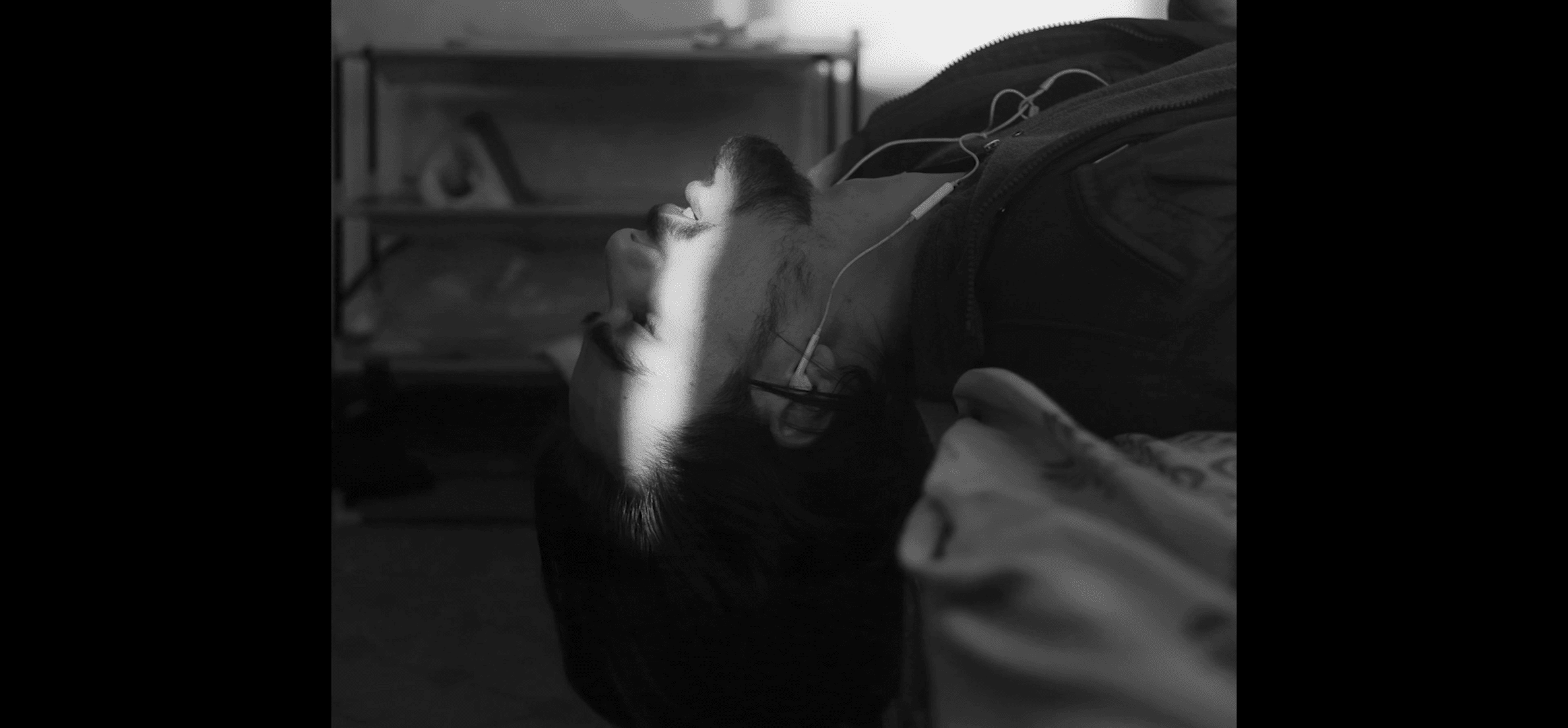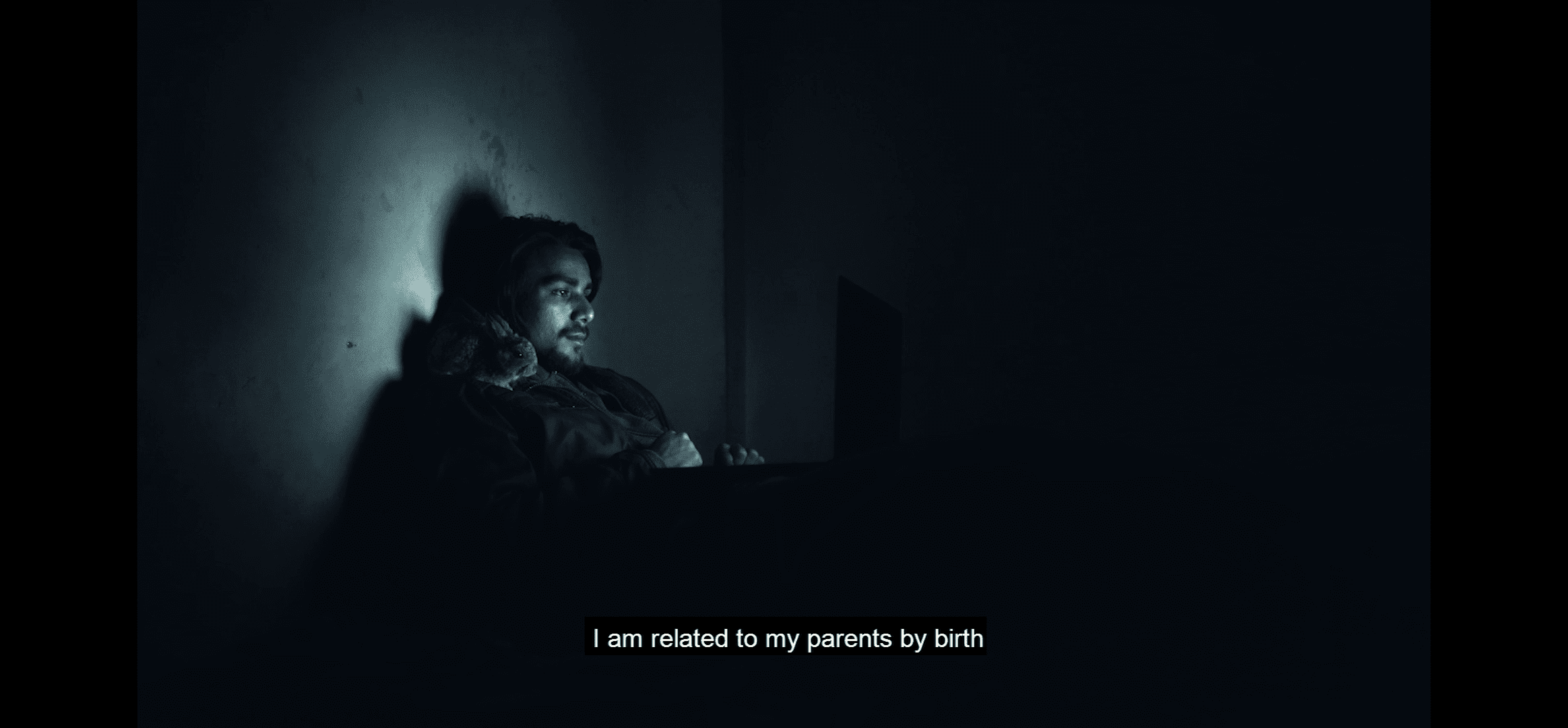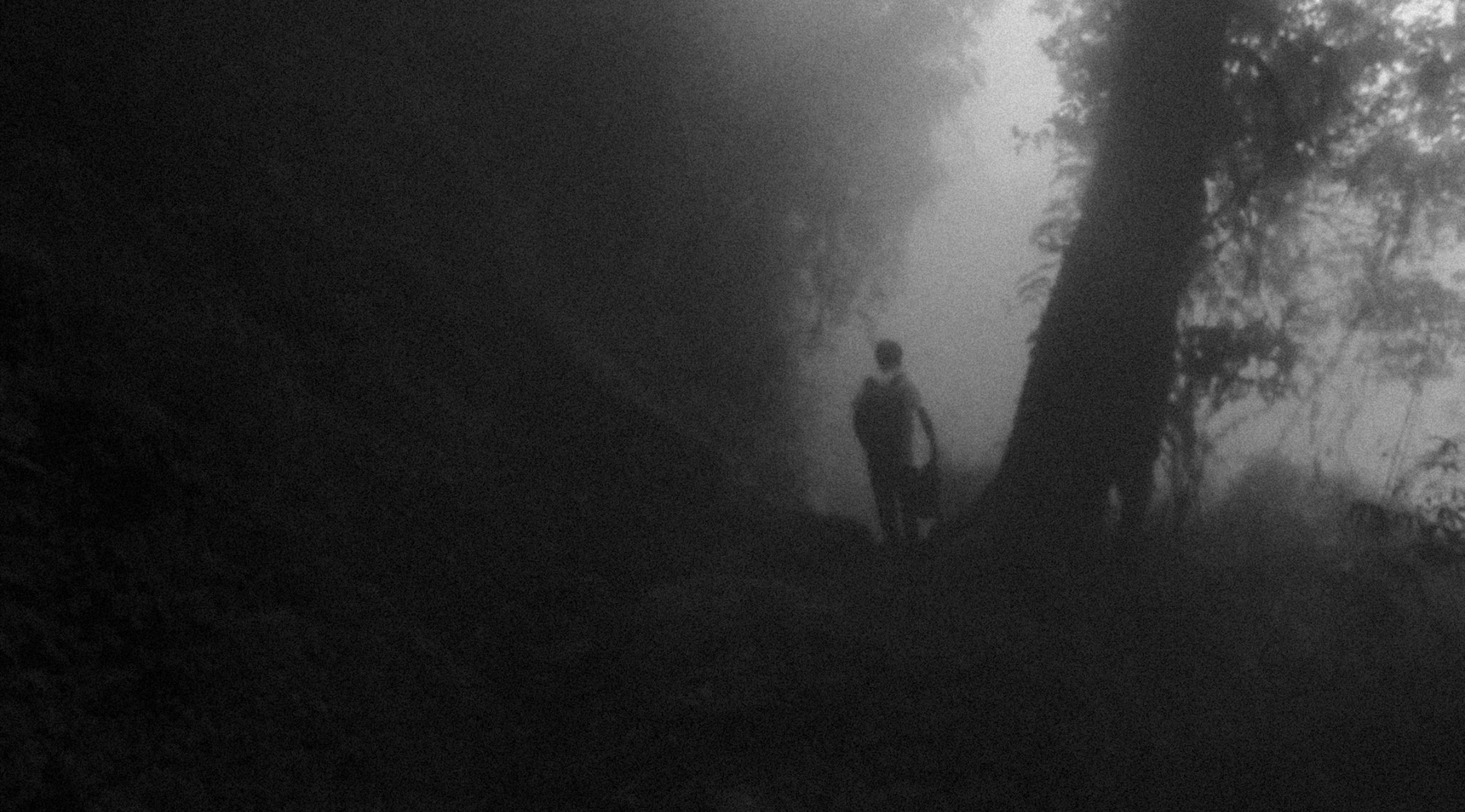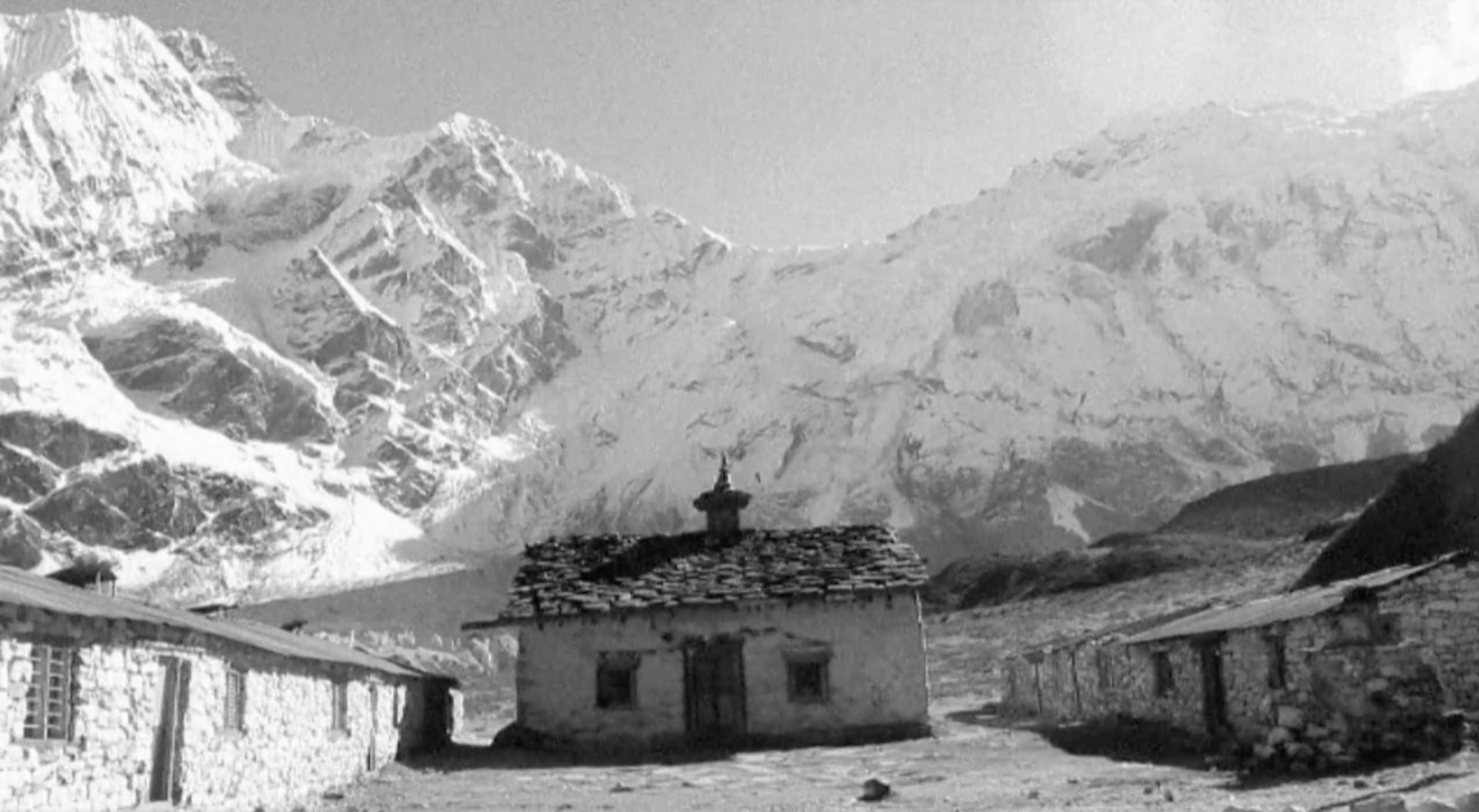The Mittal Institute welcomes Saurav Ghimire, a filmmaker from Nepal, as the new Visiting Artist Fellow. The Visiting Artist Fellowship (VAF) is a research-centered experience for mid-career artists from South Asia. Artists spend eight weeks on campus, using the vast resources of Harvard’s intellectual community to enhance their artistic practice.
Saurav shares more about his art in the interview below. Save the date to join him at the Art Exhibition Opening and Film Screening on Tuesday, October 22, where he will share more of his work with our community.
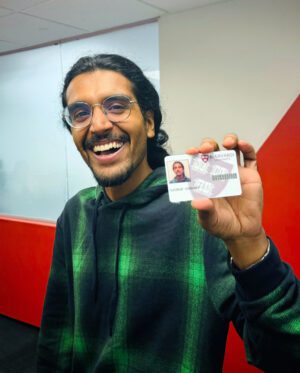
Saurav Ghimire
Saurav Ghimire
Mittal Institute: Welcome, Saurav! Can you share who you are as an artist?
Saurav Ghimire: I am a filmmaker from Nepal, with a Masters in Film Direction. I have attended international training programs such as Locarno Basecamp Academy, Odense Talent Camp, and Fantastic Film School BIFAN. These programs have offered me international exposure, crucial for expanding my cinematic worldview and skills. My background in both fiction and docu-fiction styles allows me to approach film direction with versatility.
Mittal Institute: Can you tell us about your films?
Saurav Ghimire: My first short film, Barking Dogs (14 mins, Nepal), is about a guy who doesn’t know what to do with his free time and finds a goal. It won Best Experimental Film at the Tasveer South Asian Film Festival in the USA and Best Student Film at the Pame Film Festival in Nepal.
In my second short film, Songs of Love and Hate (17 mins, Nepal-Belgium), the popular host of a relationship advice radio show suddenly disappears, leaving a vacuum among the listeners. The film had its world premiere at the Berlinale’s Generation 14plus competition, where it received a Special Jury Mention. It was also recently awarded the Silver Goat Award for Best Short Documentary in International Competition at the Monterrey International Film Festival in Mexico. The upcoming screening of Songs of Love and Hate at the Mittal Institute will mark its U.S. premiere before it will show at the Chicago International Film Festival later this month and more festivals around the world.
My newest project is to develop a docu-fiction project titled Memories of War (30 mins), which delves into the life of a war veteran and his wife. They exchange war stories for ghost tales unveiling a tapestry of wartime memories, haunting dreams, and an unbreakable bond of love and courage. This film draws from personal diaries, archival footage, photographs, songs, and poems to explore the broader theme of collective memory and the lasting impact of war. I’m currently preparing for the film shooting in April 2025 and hope to finalize the film by June 2025.
Mittal Institute: Can you describe your artistic motivations?
Saurav Ghimire: I work with fiction and docu-fiction styles rooted in my history, sensibilities, and experiences. Through my practice, I explore how to subtly disguise the personal elements to achieve a universal story that comments on the political, social, cultural, and historical layers. The signature element in my work is the use of archives. For example, Songs of Love and Hate uses archives to create a third world from a given set of images, sounds and words resulting in an inventive cinematic space that ponders the questions of love, both romantic and conscious of its social conditions and obstacles.
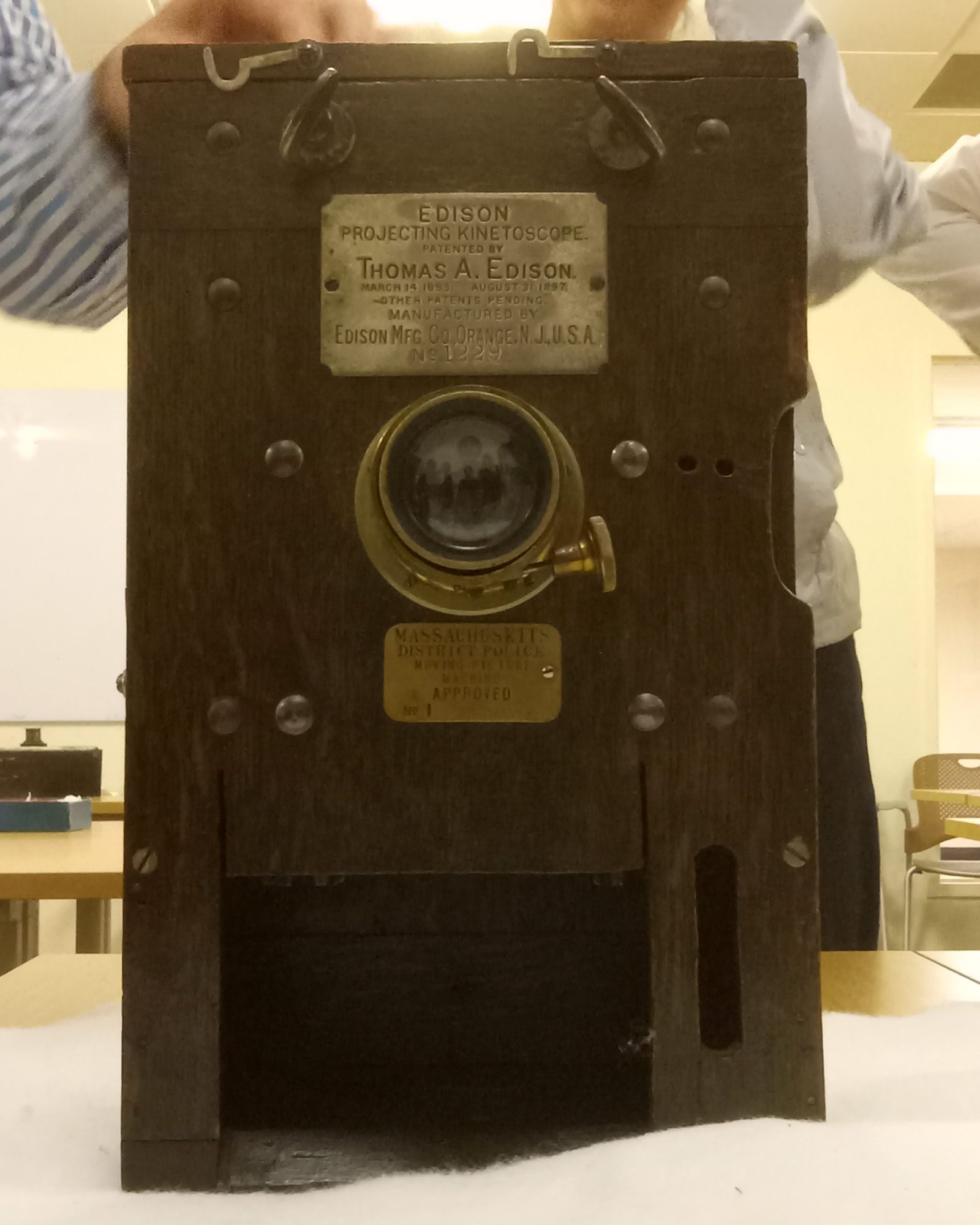
Saurav attends classes and workshops related to filmmaking during his fellowship at Harvard.
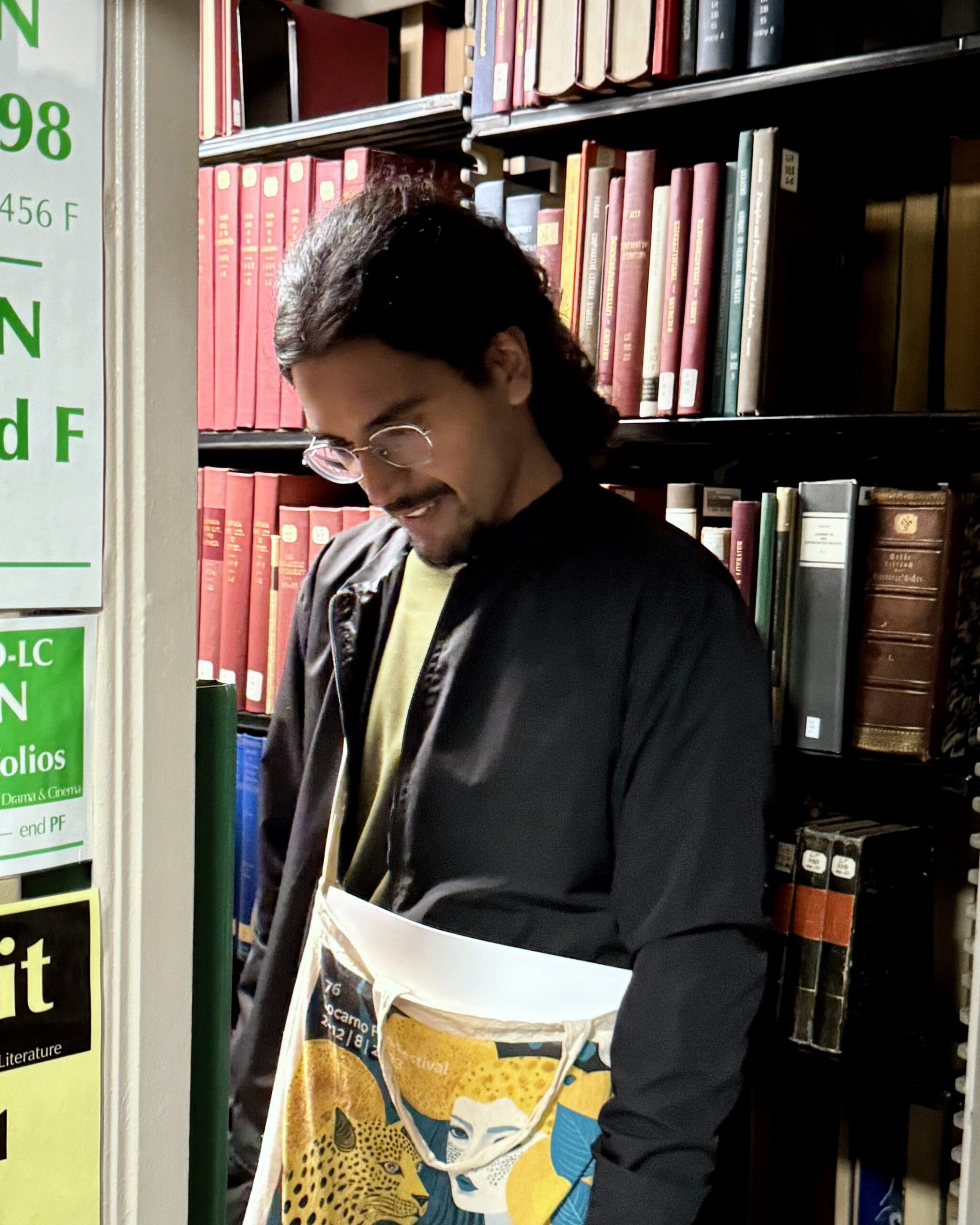
Saurav exploring the Harvard Widener Library.
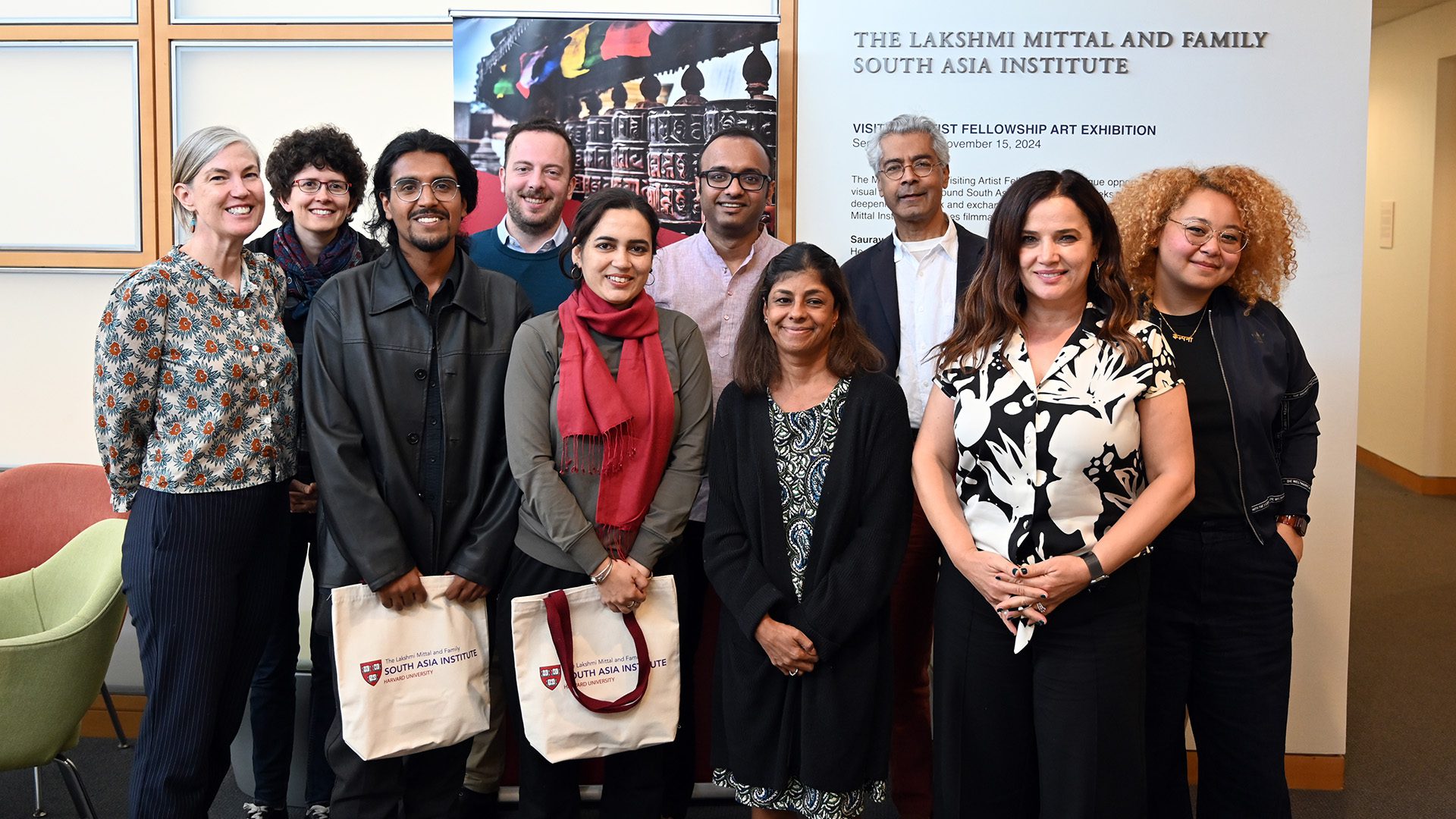
Saurav (third from left) with Mittal Institute staff and fellows.
Mittal Institute: You’re also committed to nurturing Nepal’s film culture. Can you tell us more about it?
Saurav Ghimire: Yes, I am working to establish a Film Culture Center in Nepal aimed at preserving, restoring, and archiving essential South Asian and regional film heritage. My vision for the center is to create a space where artists and audiences can come together for creative writing and audiovisual production, fostering a vibrant creative community. To achieve this, I aim to establish a collaborative framework with the Kathmandu Metropolitan City (KMC), which was recognized by UNESCO as a Film City in 2023. I would also like to collaborate with the Film Development Board of Nepal to showcase their recently preserved films from 1965–1990. In addition, there are cultural organizations from various international bodies, such as Alliance Française, FIAF, and UNESCO, whose partnership could enhance the reach and resources of my film preservation efforts.
Mittal Institute: What are you most excited about being in Cambridge and on the Harvard campus?
Saurav Ghimire: I am particularly eager to explore the Harvard Film Archive’s collection, where I can discover works of marginalized artists whose stories and perspectives are often overlooked. Engaging with these works will provide invaluable insights and inspiration, allowing me to deepen my understanding of diverse artistic voices and how they contribute to the broader cultural and political discourse.
Mittal Institute: What do you expect from your time at Harvard?
Saurav Ghimire: I plan to conduct a comparative study between the state of the Nepalese Film Archive and the Harvard Film Archive, exploring their roles in shaping a national film culture. This research will focus on the critical importance of preserving cinematic history and highlight the profound consequences of losing our collective memory. By examining these archives, I aim to investigate how film can contribute to creating a more visually literate audience and fostering a deeper cultural engagement with cinema.
☆ The views represented herein are those of the interview subjects and do not necessarily reflect the views of LMSAI, its staff, or its steering committee.
Gallery of Work
Click on the image below to see the gallery!

